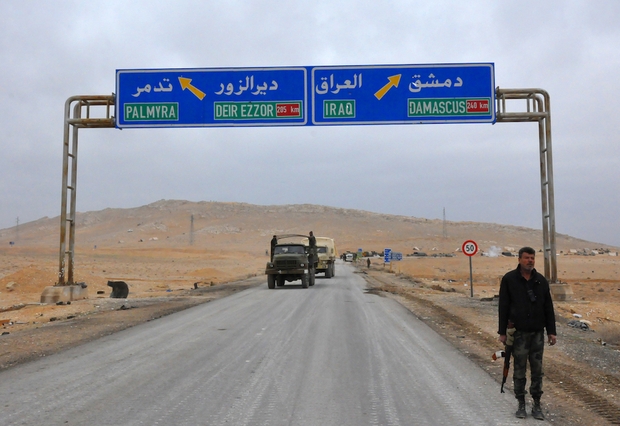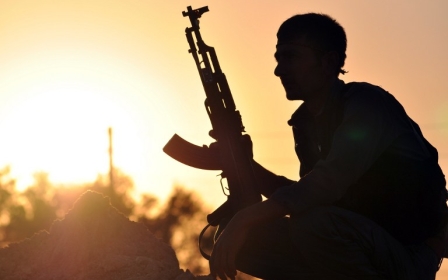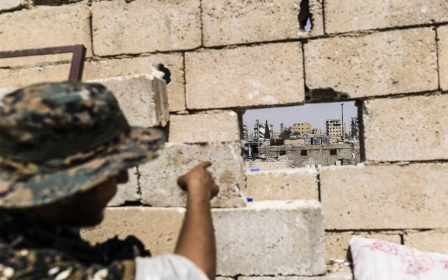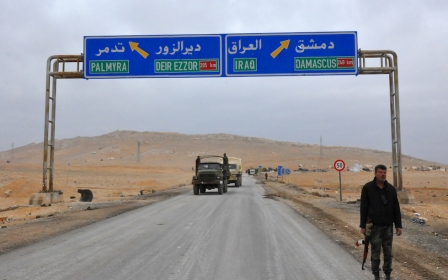Syria army advances against IS, approaches Deir Ezzor, says monitor

Syrian government troops advanced overnight against the Islamic State (IS) group in the country's north and centre, drawing closer to the key battleground of Deir Ezzor, a monitor said.
The Syrian Observatory for Human Rights, a Britain-based monitor, said the army had made "significant progress" south of Raqqa city.
"There is now just four kilometres between regime forces and the town of Madan, which is the last town controlled by IS in the Raqqa countryside," the Observatory said.
Madan lies next to the border between Raqqa province and Deir Ezzor, an eastern province that is mostly held by IS.
Militants have besieged government forces and civilians inside the provincial capital Deir Ezzor city since 2015.
Syrian loyalist troops are battling IS in the south of Raqqa province separately from an offensive by the US-backed Syrian Democratic Forces, a militia that is fighting the militants inside Raqqa city.
The government is also fighting IS in central Homs province, where overnight they captured the last militant-held town in the area, according to the Observatory.
The capture of al-Sukhna in Homs province opens the route for government troops to advance towards Deir Ezzor on a second axis.
There was no official confirmation of al-Sukhna's capture from Syria's government.
State news agency SANA said the army had surrounded the town from three sides.
Since May, Syria's army has been conducting a broad military campaign with Russian support to recapture the vast Badia desert region that separates the capital Damascus from Deir Ezzor.
The Observatory said at least 64 IS militants were killed in clashes with the government and air strikes across the Badia region on Saturday.
Among the dead were 30 killed in the fight for al-Sukhna, the monitor said.
Already defeated in its Iraqi bastion of Mosul, IS is facing multiple assaults in Syria.
The SDF now control more than half of Raqqa city, a key IS stronghold.
Middle East Eye propose une couverture et une analyse indépendantes et incomparables du Moyen-Orient, de l’Afrique du Nord et d’autres régions du monde. Pour en savoir plus sur la reprise de ce contenu et les frais qui s’appliquent, veuillez remplir ce formulaire [en anglais]. Pour en savoir plus sur MEE, cliquez ici [en anglais].




